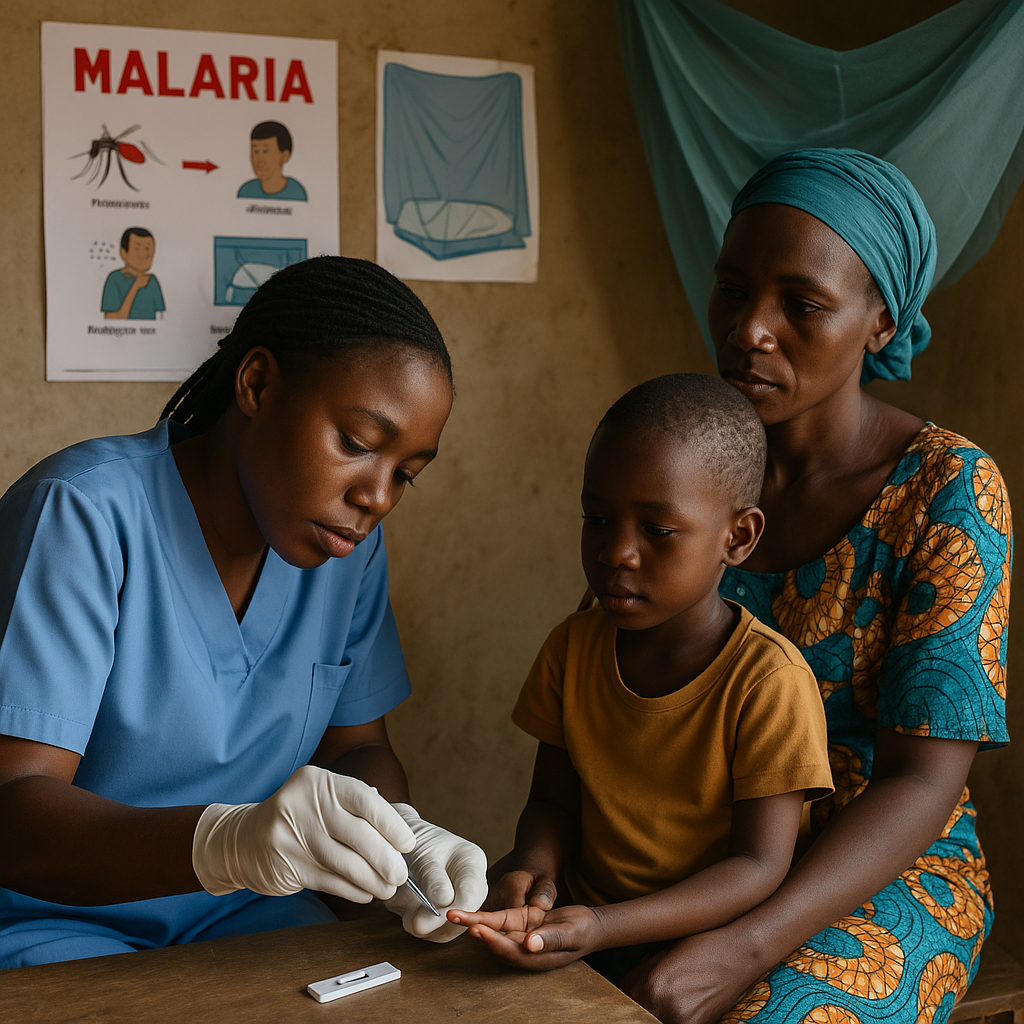
Expert Advice on Combating Malaria in Nigeria: Tackling the Root Causes
Malaria remains one of the most significant public health challenges in Nigeria, with the country accounting for 31% of global malaria deaths. While great strides have been made in the fight against the disease, Nigeria still faces alarmingly high malaria transmission rates, particularly among vulnerable groups such as children under five and pregnant women.
To tackle malaria effectively, Dr. Emmanuel Iyere, Head of Diagnostics at BT Health & Diagnostics Centre in Ikeja, a subsidiary of PPC Healthcare, states that opinions and evidence-based strategies must guide the way forward.
Here, we’ve gathered his advice on how Nigeria can combat malaria and protect the health of its citizens.
1. Early Diagnosis and Prompt Treatment: The First Line of Defense
One of the critical steps in malaria control is early diagnosis and prompt treatment. According to Dr. Iyere, “Malaria is a treatable disease, but without proper diagnosis and timely treatment, it can be fatal.”
It is important to ensure that rapid diagnostic tests (RDTs) and microscopic diagnosis are available at all healthcare levels, particularly in rural and remote areas, and health workers must be adequately trained to diagnose malaria early and to prescribe appropriate antimalarial treatment.
2. Strengthening Preventive Measures
Preventing malaria before it occurs is one of the most effective ways to reduce the disease burden. Dr. Iyere further emphasizes that “Prevention is always better than cure, and consistent use of preventive measures such as insecticide-treated nets (ITNs) and indoor spraying can significantly reduce transmission.”
There is a need for widespread distribution of ITNs and the use of indoor residual spraying (IRS)
3. Community Engagement and Education: Empowering the Public
An effective malaria control programme also requires community involvement and public awareness. Dr Iyere advises launching community-based malaria education campaigns to inform people about symptoms, the importance of seeking early treatment, and how to properly use prevention tools like ITNs and insecticides.
4. Improving Healthcare Infrastructure: The Backbone of Malaria Control
Malaria control efforts are hampered by the lack of sufficient healthcare infrastructure in many areas. Dr. Iyere stresses, “Strengthening the healthcare system, especially in malaria-endemic areas—is essential. Without well-equipped health centers and trained professionals, the fight against malaria cannot succeed.”
He advocated for increased funding for healthcare infrastructure to provide more clinics with access to diagnostic tools, medicines, and trained healthcare workers and a focus on strengthening the primary healthcare system so that people in remote areas can access malaria care easily.
5. Tackling Environmental and Social Determinants of Malaria
Malaria thrives in places with poor environmental conditions, especially stagnant water where mosquitoes breed. To make a lasting impact on malaria control, environmental improvements must go hand in hand with health interventions.
Local governments must invest in better waste management, improved drainage psystems, and mosquito control programs in high-risk areas and Public health campaigns should also focus on educating communities about how they can reduce mosquito breeding sites in their own homes.
The Way Forward: A Collective Effort
In conclusion, combating malaria in Nigeria requires more than just funding or policies; it requires a collective effort from all sectors of society. As Dr. Iyere puts it, “A malaria-free Nigeria is possible, but only if we unite to tackle these barriers and take action at every level. Malaria ends with us, if we act together.”
By adopting these expert recommendations and focusing on targeted interventions, Nigeria can reduce the burden of malaria, improve the quality of life for its citizens, and move closer to a malaria-free future.
Let’s take action today for a healthier tomorrow.